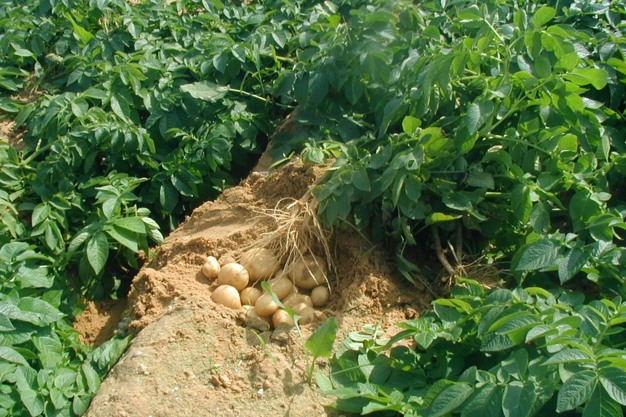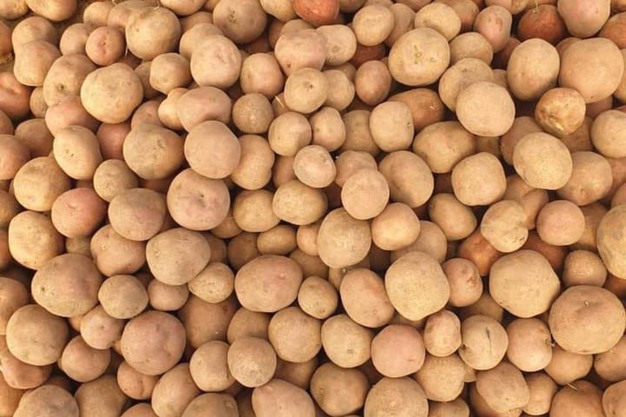West African countries are heavily dependent on imports for the supply of essential fresh produce, such as potatoes and onions. The main supplier of these fresh products is the Netherlands, followed by other countries such as Morocco. Yet commodity trade in West Africa has proved unstable, whether due to soaring prices during certain periods of the year, particularly the off-season months and Ramadan or when a major source such as Morocco bans exports to these countries in order to protect its local market.

"Difficulties in supplying the West African market make it necessary to diversify the origins of potatoes and onions, bearing in mind that this region cannot become self-sufficient overnight", says Yassen Abdelhay, export advisor to the Arafa Company, a potato producer and exporter. He continues: "The West African market faces enormous challenges in becoming self-sufficient, and this self-sufficiency will not be achieved any time soon, as it requires huge investments in a geographical area with high levels of poverty, as indicated by the UN report "More than 25 million people are unable to meet their basic food needs". The vulnerability of the region is exacerbated by climate change and the resulting export bans by major producing countries. These challenges will affect dependent countries more negatively than others".
The exporter asserts that Egypt is the ideal candidate to become a major stable source of commodity products for the region: "Egypt can play a strategic role in securing essential fresh produce like potatoes and onions for West African countries, for several reasons:
Egypt can partially cover out-of-season periods when the Netherlands supply ends, especially with the current challenges of the global fresh produce situation.
Availability of over one million tons for export of Egyptian fresh onions from April 2024
The Egyptian government is encouraging exports, particularly to Africa, and this is a good step forward for the free trade agreement between African nations. It's an alternative market away from the current challenges of the Red Sea.

However, penetrating West African markets will not be an easy task for Egyptian exporters, concedes Abdelhay. The exporter points in particular to "the current lack of direct shipping lines with affordable rates, which Afreximbank should encourage and finance. There are also barriers to entry such as dealing with brokers who currently dominate the market, payment terms options and the availability of reliable bank payment solutions, and the lack of protocols for promoting trade between Egypt and West African countries. More than anything, Egyptian exporters need to source large volumes very early in order to be competitive in such a new and vast market, and to be able to achieve economies of scale."
It's worth recalling that the local Egyptian market, with its population of over 100 million, needs huge volumes of potatoes, with local consumption reaching several thousand tonnes a day, not to mention the needs of local potato processing factories and existing export markets. Abdelhay says: "Concerns about supplying the local market and the country's food security have prompted the Egyptian government to reclaim hundreds of thousands of hectares. This year's production is stable for potatoes and should increase for onions. From this season onwards, we will have more than a million tonnes available for export at the national level, which will enable us to meet the needs of new markets".
Abdelhay continued: "At Arafa Company, we have the capacity to play a key role in opening up and supplying West African markets. We are one of Egypt's leading producers and exporters of fresh potatoes, with extensive experience in exporting fresh Egyptian potatoes (especially processing potatoes) to various markets such as Spain, Belgium, Croatia, Saudi Arabia, Kuwait, the United Arab Emirates, Indonesia, Lebanon, Iraq and others. We export the Lady Rosetta and Hermes varieties, whose specifications are ideal for chips (high solids and low sugar content). All production takes place on our own farms, which currently number 10,000 acres, using sustainable farming practices to protect the environment, expand the Earth's natural resource base, and maintain and improve soil fertility."

The exporter highlights a recent milestone for his company, as PepsiCo Egypt celebrated its fourth potato harvest season under the 'She Feeds the World' program. He says "We're an approved supplier to PepsiCo Egypt, Saudi Arabia and Iraq. We have been actively involved in the 'She Feeds the World' program directed to women growers, by providing seeds and technical assistance and buying the crops. The program has been running for over three years and its success is due to the ongoing support of all parties involved, including Arafa Company, the Care Foundation, and PepsiCo Egypt.
"It's an experience that is in line with the needs of West African countries. We are currently paying a lot of attention to these markets, which are a strategic goal for us." Abdelhay concludes, "This is in fact one of our objectives at Fruit Logistica, where we'll be happy to represent Egypt and talk to representatives from West African countries and around the world, who can find us in Hall 22, Stand C-56."
For more information:
Yassen Abdelhay
Arafa for export and agriculture development
Tel/WhatsApp: +201007244471
Email: [email protected]
www.linkedin.com/in/yassen-farouk-cma-mba-yassen-abdelhay-99415a82
www.arafatrade.com










